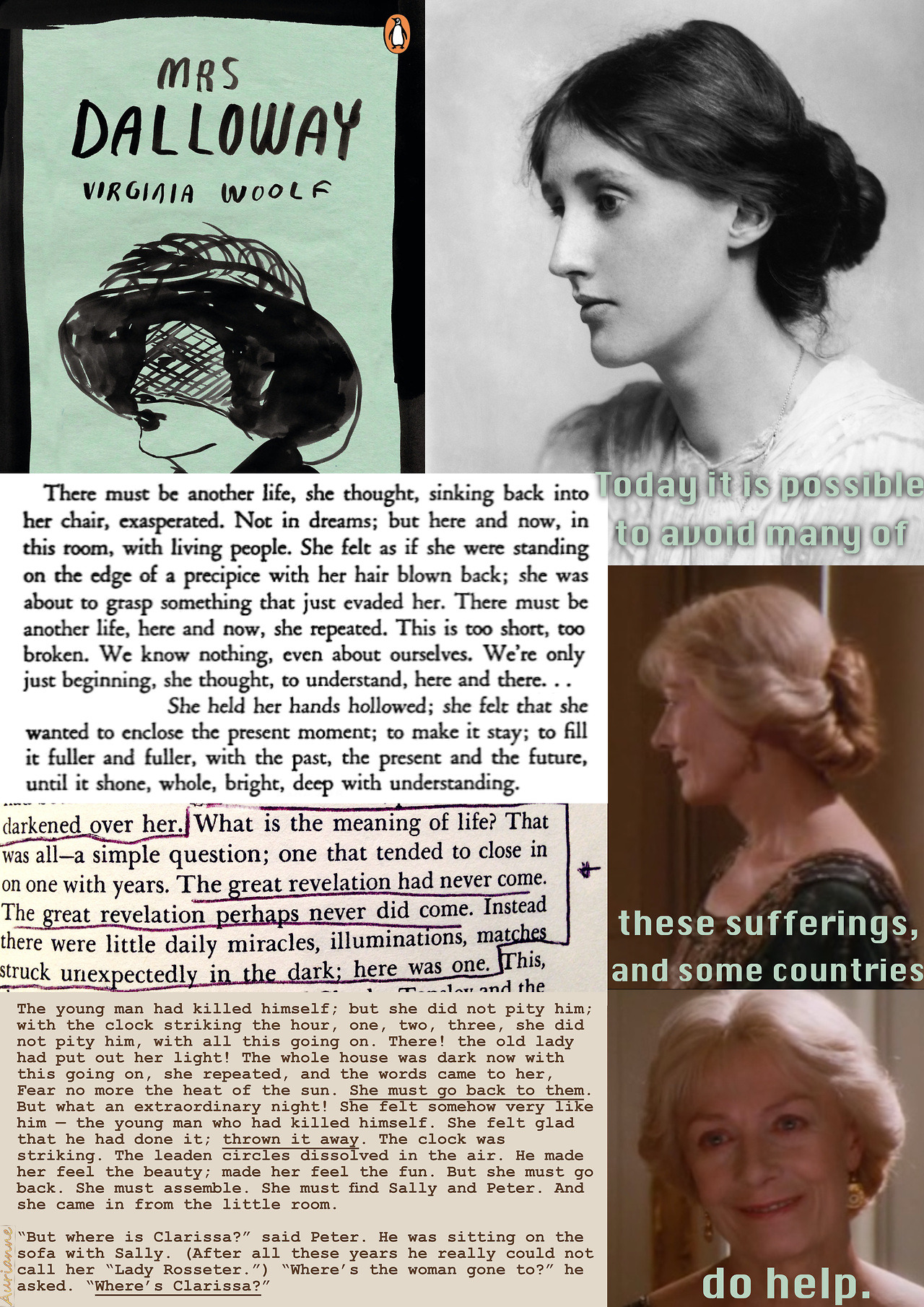Mrs. Dalloway – Virginia Woolf – eBook: https://ebooks.adelaide.edu.au/w/woolf/virginia/w91md
Mrs Dalloway’s 1997 film: http://www.imdb.com/title/tt0119723/?ref_=nv_sr_1
What Singapore, Norway and Switzerland have in common ? According to OECD (http://www.euro.who.int/en/health-topics/noncommunicable-diseases/mental-health/data-and-statistics), they are the 3 most advanced countries in the world. They also share the same approach to justice and mental health by providing their citizens with a system common to all. A single health system that includes mental health like any other condition. In these countries, mental health is accessible, affordable, efficient and is neither taboo nor a stigma.
According to WHO (http://www.euro.who.int/en/health-topics/noncommunicable-diseases/mental-health/data-and-statistics), policy direction have never been so clear : in those 3 countries there are between 35 and 40 Psychiatrists per 100k citizens. Only 9 in the other 47 developed countries.
According again to WHO (http://www.who.int/mental_health/prevention/suicide/suicideprevent/en), close to 800 000 people die due to suicide every year, which is one person every 40 seconds. Many are not even recognised as suicide which make the statistics not realiable meaning there are more. Many more attempt suicide. Suicide occurs throughout the lifespan and is the second leading cause of death among 15-29 year olds globally. Suicide is a global phenomenon; in fact, 78% of suicides occurred in low- and middle-income countries in 2015. Suicide accounted for 1.4% of all deaths worldwide, making it the 17th leading cause of death in 2015. 90% of suicide in Europe are caused by mental illness.
Mental illness causes sufferings. The three extracts of Mrs Dalloway here above are exemples of these sufferings.
There are different ways to deal with this worldwide phenomenon:
1. Ignore it.
2. Isolate and coerce people only when they disturb order.
3. Heavily tranquillise them so the people who are ill do not interact anymore.
4. Cure them, YES, that’s possible but rare. With methods, blood tests, grids, elaborate tests, adequate medication and close supervision by specialised doctors; some of these mentally-suffering people may have a normal life.
We may hope that CRISPR will make a discovery to help them even more:
Could CRISPR Gene Editing Help Cure Mental Illness? (2016): https://edgylabs.com/mental-illness-crispr-gene-editing
Novel Approach to Study and Treat Schizophrenia (2017): https://www.ncbi.nlm.nih.gov/pmc/articles/PMC5289958
Not treating mentally-suffering people not only affects the ones who are ill but also the relatives. Many love them and do their best to help. Having an ill person at home may affect others and some of them may develop a mental disease as well.
Also, most of the time, mentally-ill people lose their job and are not compensated in proportion while they could be very valuable on the working force when treated properly. Pressure at work should also be reconsidered as it can cause people to not being able to deal with their disease anymore and in the worse cases, loose track of reality. “Adequate treatment can improve employment outcome but across the 60 developed countries, 70% of mentally-suffering people do not receive any treatment”. http://www.oecd.org/els/emp/mental-health-and-work.htm
The ILO and WHO have co-published recommendations about how to deal with mental illness at work. Here it is: http://www.ilo.org/wcmsp5/groups/public/—ed_emp/—ifp_skills/documents/publication/wcms_108152.pdf
PrinceWilliam and Jacinda Ardern discuss mental health at Davos 2019: https://youtu.be/8yHqctvMtEM
Roy F. Baumeister & John Tierney – Willpower

Experiments on psychedelic substances were halted by the Nixon administration, which penalized the substance on the grounds that it was responsible for the anti-Vietnam war movement. As soon as LSD and mushrooms were banned, research came to a halt, despite very promising beginnings. In some cases, psychedelic substances could be used to treat depression, especially in patients for whom antidepressants do not work. For the moment, small-scale research is very promising. Massive public investment is needed to carry out the research, as the pharmaceutical industry is not interested in these products. It prefers to sell drugs for everyday use and for life.
Les psychédéliques, des drogues qui soignent ? | ARTE: https://youtu.be/a5SgHu9hDVw?si=UNb0ytlpWwU-3kj0
How to Change Your Mind: The New Science of Psychedelics – Michael Pollan: https://www.goodreads.com/book/show/36613747-how-to-change-your-mind












